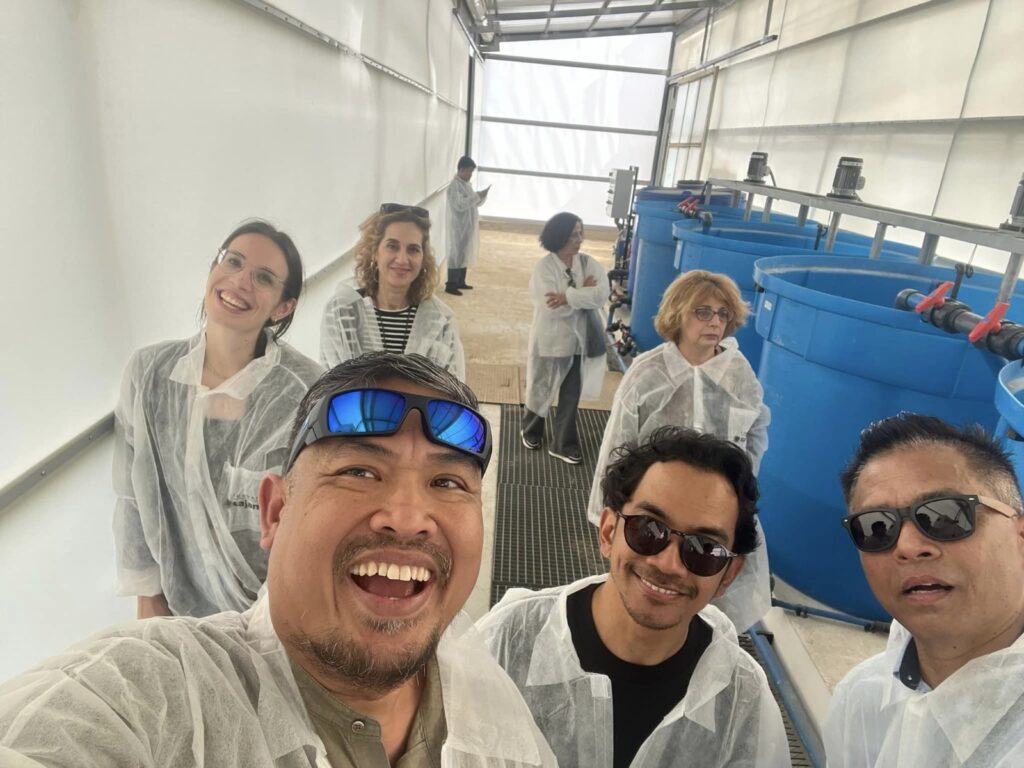
The term circular economy is often associated with the 3Rs – Reduce, Reuse, Recycle – and with the longer loop of 9Rs – Refuse, Rethink, Reduce, Reuse, Repair, Refurbish, Remanufacture, Repurpose, Recycle, and Recover.
That is a lot of Rs to remember, and sometimes, these become mere terms. They turn into a disconnected concept, irrelevant and unrelated to the lives of the many, perceived as the domain of the few.
What we need is a shift in thinking. Effort towards global sustainability are not the burden of engineers or climate scientists alone, nor should it be implemented at a fully technical level. We need to tap into the society’s creativity and collective knowledge and get more people to collaborate and co-create. We need social innovation.
Social innovation emphasises willing engagement of individuals in initiatives or solutions that address societal changes and requirements. Research shows that when people are involved in collective initiatives with their community, transformative behaviours are more likely to happen (Marchesi & Tweed, 2021). Social innovation could be the much-needed push factor for the success of circular economy in our country.
This is the crux of the ERASMUS+ project managed by Associate Professor Dr Zaimuariffudin Shukri Nordin from the Faculty of Education, Language and Communication. Through the grant, Dr Zaim and his four team members are set to develop a Circular Economy Living Laboratory for Social Innovation, here, in UNIMAS.
The Living Lab, one of two planned for Malaysia, is envisioned as a hub for activities that are geared towards circular economy discussion and actions. The other Living Lab is under the management of a research team from Universiti Sains Malaysia.
“We want to have an active knowledge-sharing one-stop centre for everyone…an open space for exchanges of sustainable knowledge, creation of practical initiatives, and exhibition of what we have done, among others,” Dr Zaim explained.
Last month, the team went to the University of Almería, Spain, to attend an in-person meeting and training about research and education programmes related to circular economy. The team members had the opportunity to witness how different Living Labs operate. For instance, in Spain, tomato production is sustained throughout the seasons using greenhouses that utilise composting, natural pollination, and organic plant growth. In Portugal, used vehicle tyres are mixed into the tarmac for constructing roads. In Laos, children who collect bottles are being rewarded through direct funds into their bank accounts.
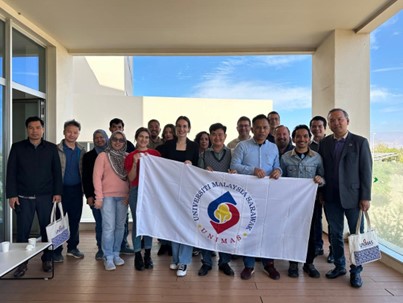
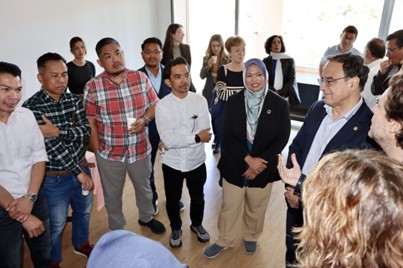
The University of Almería, together with the Polytechnic Institute of Coimbra, organised a four-day meeting on its campus to discuss advances in the development of training and research programmes on circular economy for higher education institutions in Malaysia, Cambodia, and Laos.
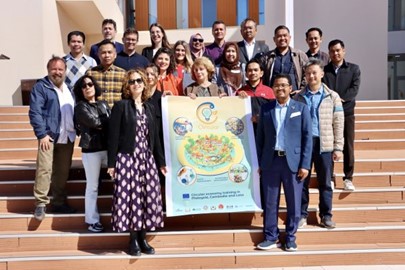
The delegation from Malaysia was coordinated by Universiti Sains Malaysia. The project consortium consists of experts from Malaysia, Laos, Cambodia, Spain, and Portugal.
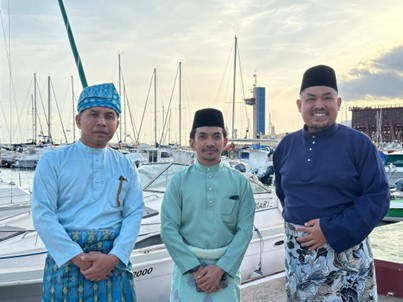
Taking the opportunity to showcase our beautiful attire to the international audience in Spain. From left: AP Dr Zaim, Prof Tarmiji, and Mr Abang Izhar.
These are all commendable circular economy endeavours that we can emulate, but practices that work well in one country may not be as effective in another. The Circular Economy Living Lab envisioned by Dr Zaim’s team can therefore be a platform to inspire the community to create and pilot workable local ideas.
As part of the Living Lab development, the team will be organising a workshop in July 2024, open to all stakeholders and all layers of the community, to share and discuss global knowledge and practices of circular economy as well as their potential application in the local context.
Dr Zaim believes that Sarawak has untapped potentials when it comes to circular economy if we can continuously connect and include diverse stakeholders in innovating and decision-making.
“Education is definitely key to empower the society to be involved. We hope that our Living Lab will be an important tool in this aspect, a catalyst towards a greener Sarawak,” he said.
The ERASMUS+ grant is led by Associate Professor Dr Zaimuariffudin Shukri Nordin from the Faculty of Education, Language and Communication, supported by team members Mr Abang Izhar Abang Ahmad from the Faculty of Cognitive Science and Human Development, and Professor Dr Tarmiji Masron and Dr Adibah Yusuf from the Faculty of Social Sciences and Humanities. The grant will run until December 2025.